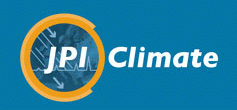
Winter School
Climate Change in Coastal Waters: From Science to Action
The CE2COAST Winter School “Climate Change in Coastal Waters: From Science to Action” took place in Lisbon, Portugal hosted by Instituto Superior Técnico and AIR Centre from 13-17 February 2023.
Global change will have significant impacts at regional and local scales on marine and coastal systems and will influence the security and productivity of coastal services. The Winter School provided the opportunity for students to learn and exchange ideas on the latest approaches in using climate change data from different modelling platforms. It enabled students to obtain the latest techniques in analyzing climate change data to understand stressor trends, thresholds and tipping points relevant for managing coastal services. The emphasis of the Winter School was to promote optimal coastal management through the delivery of the best scientific knowledge.
The Winter School was composed of a mix of lectures, a field trip and supervised and unsupervised coursework as follows: lectures on the first day, a combination of lectures, supervised practical exercises on the second and third days, a field trip on the third day, lectures on the fourth day, and presentations from students on their case studies the final day. The Winter School ran a total of 36 hours with 24 hours of lectures including field trip, nine hours of supervised coursework, and three hours of unsupervised coursework.
Lectures included an overview of the CE2COAST project, the basics of modelling, the models and observational data readily available, the importance of co-design and co-production in accelerating climate-smart action, turning overwhelming amounts of data into pieces of information that make a difference, interpreting the results from regional ocean climate change models, how to prepare job applications, ocean science in the UN system and other international frameworks, and ethics in science and communicating science.
The field trip included a visit to Núcleo de Interpretação da Duna da Cresmina, where a guide gave a short presentation on the dune restoration and protection project which began in 2009/2010. Dune monitoring has been an ongoing activity since then. Restoration and protection measures of the dune system included removal of invasive species, planting local species, controlling sand deposition with biophysical structures and building raised wood walkways for visitors.

CE2COAST Winter School students, lecturers, and coordinators group photo at Núcleo de Interpretação da Duna da Cresmina.
Supervised coursework involved practical exercises where students evaluated the availability on-line model datasets and, where appropriate, applied these data to develop representations of coastal change and worked on R to investigate carbon and nitrogen cycling through Posidonia oceanica. Students also received a constructive critique of the posters they brought with them to demonstrate current or past scientific work.

Constructive critique of student posters with Dr. Véronique Garçon.
Unsupervised coursework involved the design, preparation and development of case studies throughout the week which students presented on the final day of the Winter School. Students were invited to design case studies to simulate and co-design a science plan with potential “stakeholders” for their chosen ecosystem or ocean service and region. Their aim was to harvest observational and model data sources, analyze the data, and develop communication products and test against “stakeholder” comprehension.

CE2COAST Winter School students group photo with certificates of attendance.
One example from the student case studies involved PhD student Sofía Hernández in her presentation "Marine Forests of the Iberian Peninsula: The last kelp refugees or an opportunity for restoration?”. Global studies suggest that worldwide marine seaweed forest habitats (e.g., kelp forests) have declined over the past decades due to the impacts of climate change and particularly the effect of marine heatwaves that are predicted to increase in intensity, duration and frequency in the near future. In Europe, the recent decline of kelp forests culminated in 2021 in a nomination for the OSPAR List of Threatened and/or Declining Habitats and losses have been particularly drastic in Western Iberia, where populations of both Laminariales and Fucoids have either significantly declined or were lost entirely. In spite of this decline, the presence of a coastal upwelling system in the Northern Portuguese coast locally buffers the increase in ocean temperatures, thus creating a local heaven where marine forests can still thrive. By delivering high-resolution downscaled simulations of oceanic response to climate change at the regional coastal scale, combined with empirical datasets of past and current kelp distribution, as well as their physiological responses to thermal stress, we might still be able to (1) save the last local marine forests and even maybe (2) use these local kelp populations to seed other restoration areas further North, where marine forests have almost disappeared.
As well as CE2COAST related work, students also prepared a CV and cover letter in advance for specified relevant job advertisements, and went through a critical assessment process to see where their submission met or did not meet the advertised criteria. This enabled students to gain a greater understanding of their personal skill sets and how to present them to a prospective employer.
The Winter School brought together eight early-stage researchers from eight different countries across three continents and six lecturers leading in their respective fields of expertise.
Colleagues from Instituto Superior Técnico and AIR Centre are thanked for hosting this event and coordinating the field trip.

CE2COAST Winter School student Sofía Hernández presenting her case study “Marine Forests of the Iberian Peninsula: The last kelp refugees or an opportunity for restoration?”.
Lecturers included:
Event sponsors:












Priority was given to applicants from European Institutions.
There was no fee to attend the CE2COAST Winter School, though participants were responsible for securing funding for both transport and accommodation. Participants were also expected to bring their own laptops.













